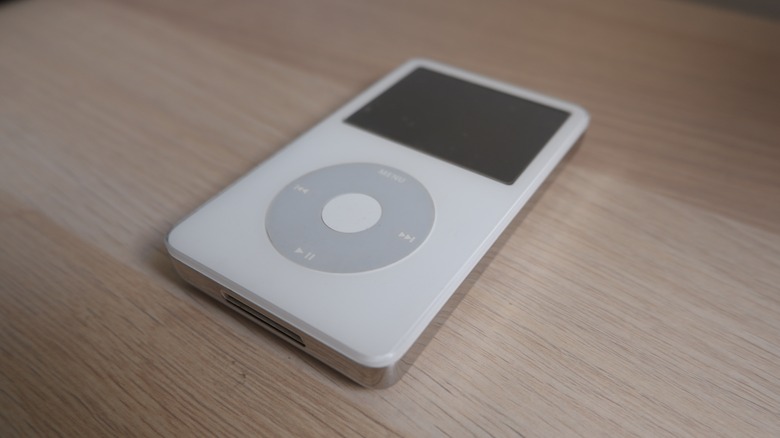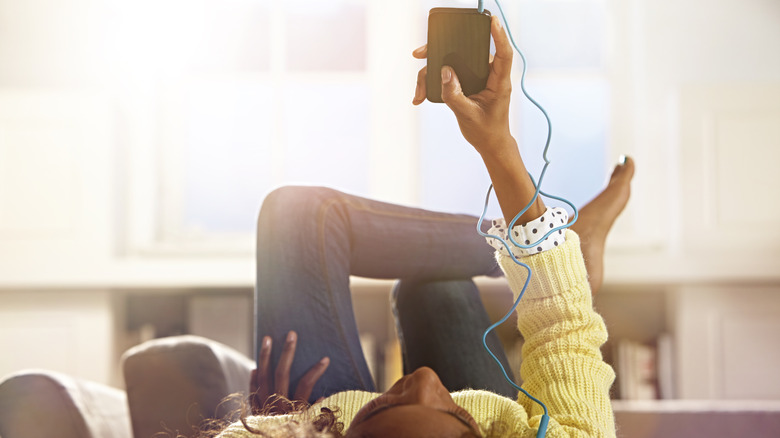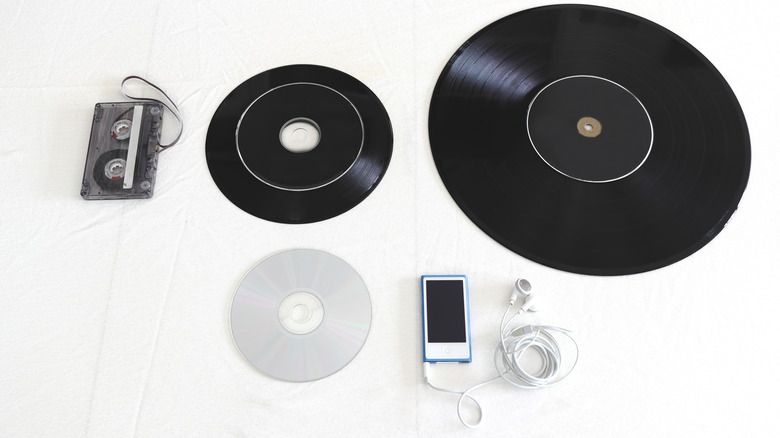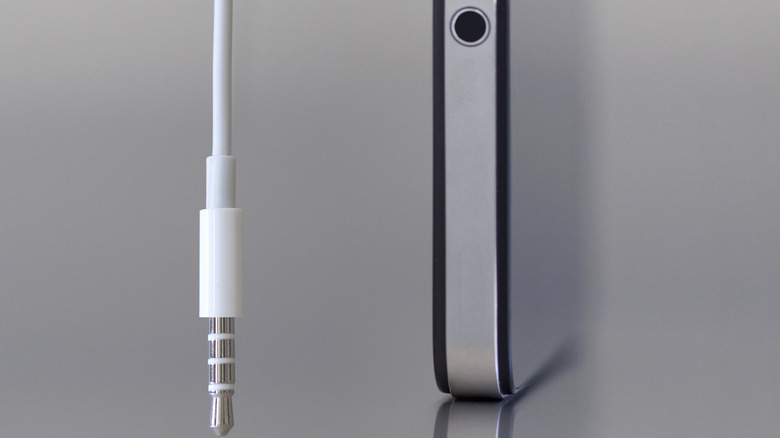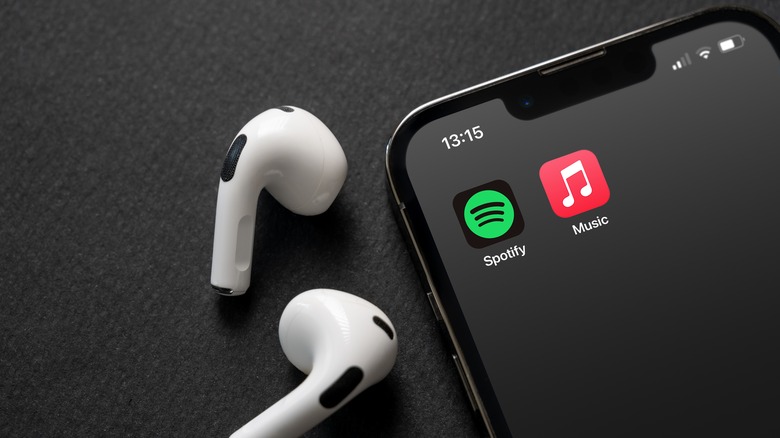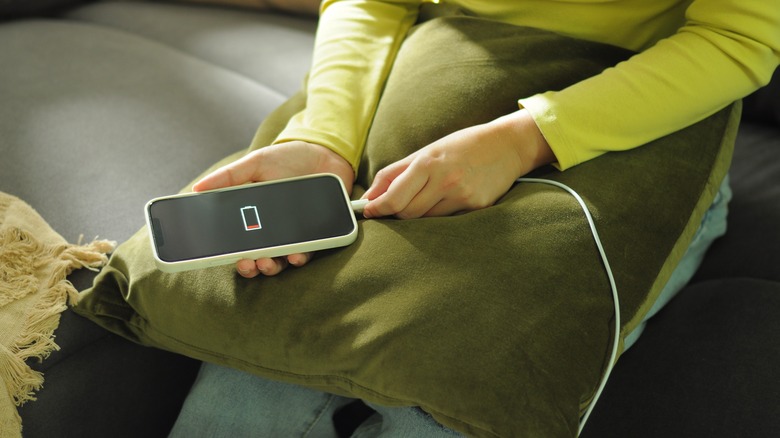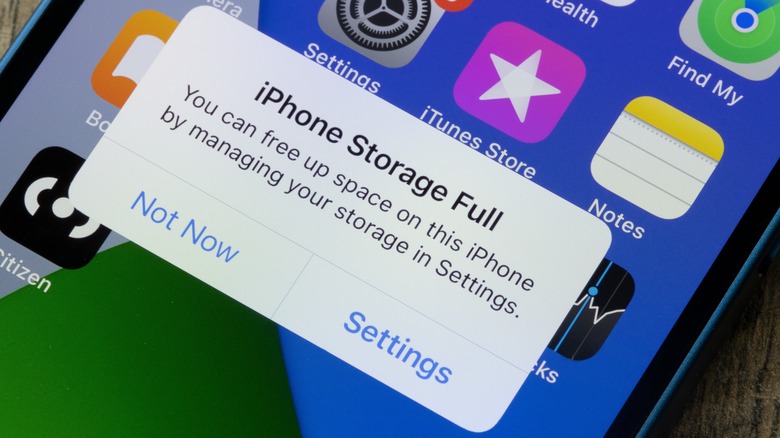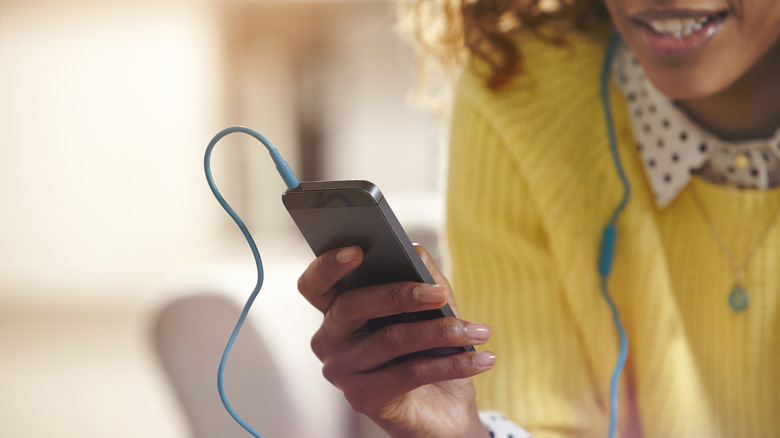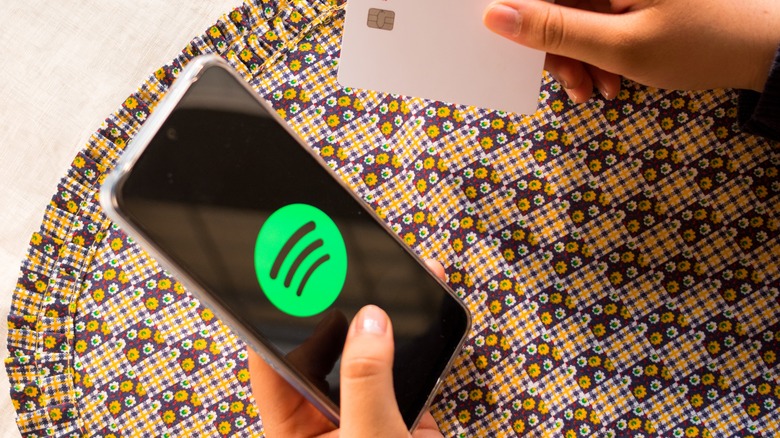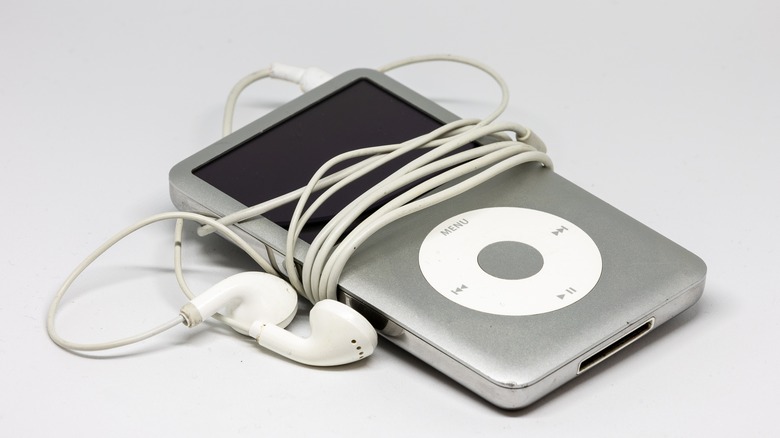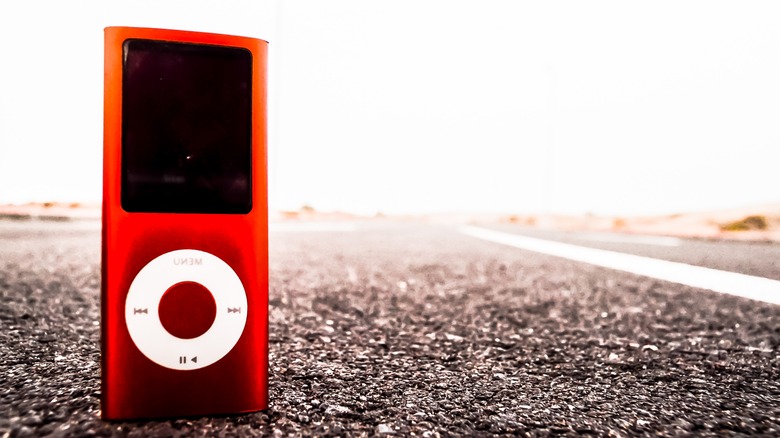11 Reasons Why An Old-School iPod Is Still Worth Buying Today
Apple's iPod wasn't just the revolutionary music-listening device that forced CD players into retirement and reshaped the music industry — it may have saved it, too. Released in 2001, it wasn't the first MP3 player — digital music players go back to 1987 — but it was highly portable, had a unique scroll wheel, and relatively large (for the time) 5 GB storage. Coupled with iTunes, it made ripping CDs and buying downloadable music easier than ever before, which was crucial, given how Napster's music file sharing platform was on track to demolish the music industry with piracy at the time.
The iPod lineup lasted until 2022, its own demise thanks to smartphones and music streaming. However, that might not have been the true end for this piece of tech from the Jobs era. Some people have dug up their old iPod Classics and vowed they're never going back to music streaming.
It may seem silly with the convenience of today's smartphones, Bluetooth headphones, and cheap streaming services, but the iPod has not yet outlived its usefulness — and we're not talking about jerry-rigging it for other purposes. Finding a working iPod will be increasingly difficult and expensive as time goes by, but it may be worth the effort. Here are some reasons why you should take a trip down memory lane with a used iPod.
Nostalgia is good for you
If you are old enough to remember the iPod when it released, it probably has some sentimental value. Younger millennials especially have fond memories of riding home on the school bus with an iPod and those cheap white earbuds. We remember the click of the scroll wheel, waiting ages to rip a CD to iTunes, and using 30-second iTunes previews to decide which songs to buy with our summer job money. Ah, the good times. But there's more to nostalgia than just reminiscing; it serves a valuable psychological purpose. According to the Washington Post, all the research suggests that nostalgia fosters social connections with others, gives meaning to our personal life narratives, and provides comfort in troubling times.
So, an old iPod could do double-duty; let you enjoy your music and the cognitive benefits of nostalgia in one. With that said, keep in mind that nostalgia has a "dark side." The so-called "Nostalgia Effect" causes us to remember things only in a positive light, so positive we might be disappointed if we attempt to relive them. You've probably experienced this yourself if you saw an old movie you enjoyed as a kid, only to discover it's actually unwatchable as an adult. Buying an iPod with rose-tinted glasses could be a recipe for disappointment.
Build up your retro music collection
Vinyl record players are coming back, but not because boomers are suddenly pining for the days of yore. Rather, because younger generations (primarily Gen Z) are fueling a resurgence of vintage media. Some studies have suggested Gen Z consumes the lion's share of all physical media — CDs, cassettes, and more — not just vinyls. With the iPhone being vintage already (and selling for ridiculous amounts at auction) it only makes sense for much older iPods to become collector's items as well. As evidence of this, some retailers (like Urban Outfitters) are making bank selling vintage, refurbished iPods.
Again, you'll probably want to buy one sooner rather than later. iPods on eBay already sell for hundreds of dollars, and as they become more rare (and more desirable), it'll be much harder to procure one. Plus, the iPod — as we'll discuss shortly — uses digital files, without the many disadvantages of vinyl records. If your intention is to get the best "vintage" music experience (from a technical perspective), this is it.
Get the headphone jack back
It is somewhat ironic that Apple built its tech hegemony on the iPod (a device with a headphone jack) only to eliminate it for good from its phones in 2016. That move inspired the entire industry to follow suit, and we've treated the jack like a deceased friend ever since. It's getting harder and harder to find flagship phones that still have one. But you know what will always have a headphone jack? The iPod. In fact, that's the only option available on the pre-Touch iPods, like the iPod Classic; Bluetooth wasn't yet supported then, and perhaps that's for the best.
This is an excellent chance to break out your wired, audiophile-grade headphones or stage-ready performing in-ear monitors. No more dongles, no more AirPods running out of battery when you need them most, and no more Bluetooth latency. Music will be higher quality — something we'll take a closer look at later — thanks to wired headphones' ability to play lossless music files and avoid Bluetooth compression. The only conceivable downside here is that if you do occasionally listen on Bluetooth headphones, you'll have to go back to the ol' ball and chain (your smartphone) to use them.
Listen to music with no distractions
Smartphones are incredible tools, yet at the same time they've crippled our collective ability to focus. One study in Scientific Reports suggests that just having a smartphone in the room (even if you aren't using it) is enough to reduce your attention span. Beyond the productivity hit, a study by the American Psychological Association found that distractions can also reduce how much you enjoy "hedonistic" experiences, such as listening to music. If you are texting friends, scrolling Instagram, and doing a million other things while Apple Music is playing in the background on your smartphone, there's a good chance you're deriving less pleasure from the music. An iPod could fix this.
Those who remember the iPod classic know that the interface is dead simple. When you listen, It's just you and your songs. No games (well, aside from the "Brick"), no notifications, no nothing. The iPod didn't even support a Wi-Fi connection until the iPod Touch. Provided you keep your smartphone in another room, you'll probably have a more enriching music-listening experience on an iPod.
Listen to music without algorithms
Music streaming didn't just change music delivery (going from downloading songs to playing them over internet), it changed how we listen to music as well. Just look at how Spotify's music algorithm knows what sort of music you're into. Post-iPod, you may find yourself going down the "related artists" rabbit hole to find new songs, or listening to Apple Music's radio option to automatically play similar music. Algorithms do it all. In theory, it sounds great. Who wouldn't want more of what they love? Quite a few people, actually, who are beginning to realize how the algorithm can be problematic.
The biggest issue right out of the gate is that algorithms don't really let you explore. As you grow older, your music taste will likely evolve and change. Very few people listen exclusively to the same bands and songs all their life. There's a good chance that you'll find something you like when stumbling upon a genre you'd previously avoided — especially if you load it up on your iPod and force yourself to listen.
Second, (speaking entirely from personal experience) algorithms feed that depressing, dopamine-starved hunt for instant gratification that's common when scrolling social media; you're always seeking out novelty (new playlists and radios) rather than enjoying the music you already have. On an iPod, the shuffle option is the maximum extent to which an algorithm will impact your music listening. Being stuck with what you've got will, anecdotally speaking, probably make it more enjoyable, too.
Save battery on your phone
All-day battery life is a buzz word phone manufacturers love to throw around, but rarely ever is it true. Unless you're rocking one of the Android phones with the best battery life, you'll most likely need a top up once before bedtime. Music listening isn't nearly as battery intensive as other phone activities, but it does contribute to the problem. An iPod can help. Leave your phone in your pocket and let your iPod battery take the hit instead.
The iPod Classic was rated for 36 hours of music listening. You won't have to charge it for days, maybe even weeks. Just keep in mind that these old devices will suffer from some degree of battery degradation due to their used condition and age, so a battery replacement may be in order. Apple still replaces the batteries on some select iPod models, but barring that, you will have to replace it yourself. Consider heading into a shop and having a professional do it for you. iFixit offers a guide on DIY battery swaps, with the caveat that it will be "very difficult."
Save on storage
Storage space is another pain point when it comes to smartphones. You can either stream all of your music (eating up your limited data caps while on the go) or store it offline (hogging on-device space already taken up by apps). iPhone users suffer the worst, since even the top-of-the-line iPhone 15 Pro starts out at a measly 128 GB of storage. The Galaxy S24 Ultra ships standard with 256 GB, but even that might not cut it for someone with a big music library and a lot of apps. Upgrading to larger storage tiers costs hundreds of dollars in either case. If you're hurting for that storage, the iPod might be the cure.
At its peak, the iPod Classic maxed out at 160 GB, and even the more common 120 GB variant will satisfy the needs of all but the most diehard music enthusiasts. For reference, 120 GB version holds up to 30,000 songs stored in 128-kbps AAC. There's still more than enough room if you want your music in higher-quality 256-kbps AAC files. If 160 GB is still somehow not enough for you, then you might be able to upgrade it with a DIY drive swap. One user on iFixit claims they were able to successfully install a 256 GB drive on their iPod Classic.
Listen to music entirely offline
Another issue with streaming music is that it depends entirely on how good your connection is at the moment. So while you might have unlimited data (letting you listen as much as you want without worrying about storage requirements) that all ends the second you hit a dead zone. Even if you do have enough storage, you may occasionally have trouble ensuring your music library stays downloaded. You'll find no shortage of users who discover their offline music streaming downloads mysteriously self-deleting. Speaking again from personal experience, it's deeply frustrating to go on a flight or on an outdoor trip, only to realize some or all of your offline music was un-downloaded for no discernible reason.
Putting music on your iPod can be a bit more tedious with having to use iTunes, sure, but at least you know it stays there. Unlike smartphones these days, there's no option to delete that music on-device, by accident. Just make sure the iPod's charged and you're good to go.
Save money on streaming subscriptions
Music streaming isn't all bad. Perhaps the biggest benefit, aside from the convenience, is how affordable it is. Someone who constantly adds new songs to their music library will save money with a streaming plan compared to buying those songs individually. Both Spotify and Apple Music cost $11.99 and $10.99 respectively, with even better savings if you get a family plan. However, that's also part of the reason musicians don't make much money off music streaming; you're effectively paying the price of a meal to listen to any song, at any time, as many times as you want. That's wonderful for the consumer, unless you have a set music library that doesn't change much. With limited storage and the abolishment of the headphone jack, music streaming could be making you pay to listen to music you already own on CD.
The iPod makes the perfect platform for enjoying to that dedicated, offline music library. If not that, then it's a great way to support your favorite artists. You can use platforms like Bandcamp to buy songs that actually belong to you (and that you can listen to as many times as you want for free) while ensuring artists receive a healthy 85% of profits. It's a welcome a return to form, a reminder of the days when you actually owned the things you bought online.
Listen to lossless music on the go
Lossless audio is music in its purest form, without any detail missing. In most cases, you're listening to music files with lossy compression that causes data to, well, get lost after re-encoding a song into a smaller file format. Apple Music supports lossless music, and Spotify has long been promising its HiFi lossless tier, but this is meaningless on a smartphone without a headphone jack. Bluetooth cannot support lossless audio; you'd need a Wi-Fi-based protocol like aptX Lossless, which most devices do not support. Further, lossless files take up a lot of space on those cramped smartphone drives — one lossless file can be five times of a lossy version.
For the audiophile, an iPod is the ticket. The iPod Classic supports Apple Lossless (ALAC), AIFF, and WAV. You can easily convert your existing FLAC or WAV files to ALAC in the Apple Music app. The only downside, as you may have guessed, is storage. Those lossless files are going to add up quickly, so it's advisable to only listen to your favorite tunes in lossless quality. Still, even listening to only lossy files could be better — with the right tuning, most wired headphones do actually just sound better than Bluetooth, even if the difference isn't perceptible to most.
Keep your listening habits private
One final downside of streaming platforms is, to the surprise of absolutely no one, their data gathering practices. In 2023, Spotify was fined over $5 million for GDPR violations. YouTube (the foundation of YouTube Music) was fined $170 million for similar reasons. While Apple Music and TIDAL haven't been slapped on the wrist, they do gather data on you. Perhaps it's only a matter of time before we find out they've collected more than they claimed to, or sold it without your knowledge. The point is, Silicon Valley has no shame, and even something as benign as music listening is in its surveillance crosshairs. To be clear, we're not saying you should be worried that people will find out you listen to "Gucci Gang" every day; we just think you should be fed up with this creepy data mining that wraps its grimy fingers around every aspect of your life.
Naturally, the iPod solves this. It's hard to say whether iTunes tracks what songs you've been listening to once you connect your iPod to your computer, or if that data ends up on Apple's servers. At the very least, the lack of a Wi-Fi chip means your music listening history is completely, entirely off the books until you next connect. So if music privacy is important to you — or privacy in general — the iPod is where it's at.
